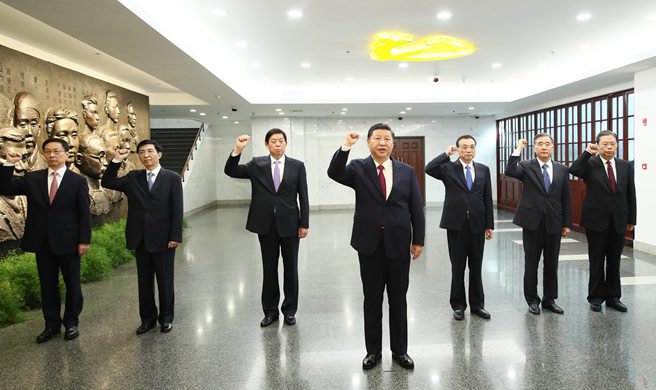WASHINGTON, Nov. 1 (Xinhua) -- With more contacts with and better understanding of each other, the United States and China are both better off, Harvard professor Joseph Nye said in a recent interview with Xinhua.
"I think the more that the Chinese and Americans have contact with each other and understand each other, the less likely they are to have worst case analysis of the other," said the U.S. scholar known for coining of the term "soft power."
While it would go against human nature for the two sides to see eye to eye with each other on everything, Nye cautioned that people also "exaggerate the question of other people's intentions" and see others as enemies "when they don't have to be enemies."
"I've often said that with soft power, which is the ability to attract, this can be win-win," Nye told Xinhua. "If China becomes more attractive in the eyes of Americans and America becomes more attractive in the eyes of the Chinese, then we're both better off."
For Nye, the U.S.-China relationship is one of "healthy competition but also cooperation."
"But if the United States and China don't cooperate on issues like financial stability or climate change or terrorism and so forth, we're both going to be worse off," he noted, adding that while cooperation between the two largest economies is a choice, it is "also a necessity if we're going to achieve what we want."
The U.S.-China relationship over the past five years has been, by and large, more positive than negative, Nye added.
"There are some areas where we've had disputes, but there are other areas where we've cooperated and I think that has been win-win," he noted.
For the whole world, it is also a win when a powerful country and a rising power cooperate, said Nye, highlighting U.S.-China cooperation in producing public goods.
"Those (public goods) are good for China and they're good for the United States. But they're also good for other countries," said Nye. "So in terms of producing public goods or a global public goods, that's win-win for everybody."
Early this year, Beijing rolled out the red carpet with thousands for delegates, including more than two dozen heads of state and government, attending the inaugural Belt and Road Forum for International Cooperation.
The Belt and Road Initiative, proposed by Chinese President Xi Jinping in 2013 to chart out new territories for international cooperation, can be a global public good builder if China uses its finances to create infrastructure which everybody can benefit, said Nye.
"One Belt One Road should be able to produce global public goods. I think it can be," said Nye. "At this stage, it still has to be worked out in details."
According to the scholar, the United States should cooperate with China on the initiative.
U.S. President Donald Trump is to visit China soon as part of his upcoming tour to Asia, which is expected to further enhance cooperation between the two countries.
"I don't see any reason why the United States can't have cooperation with China on many of the types of projects which will go into One Belt One Road," said Nye.


















